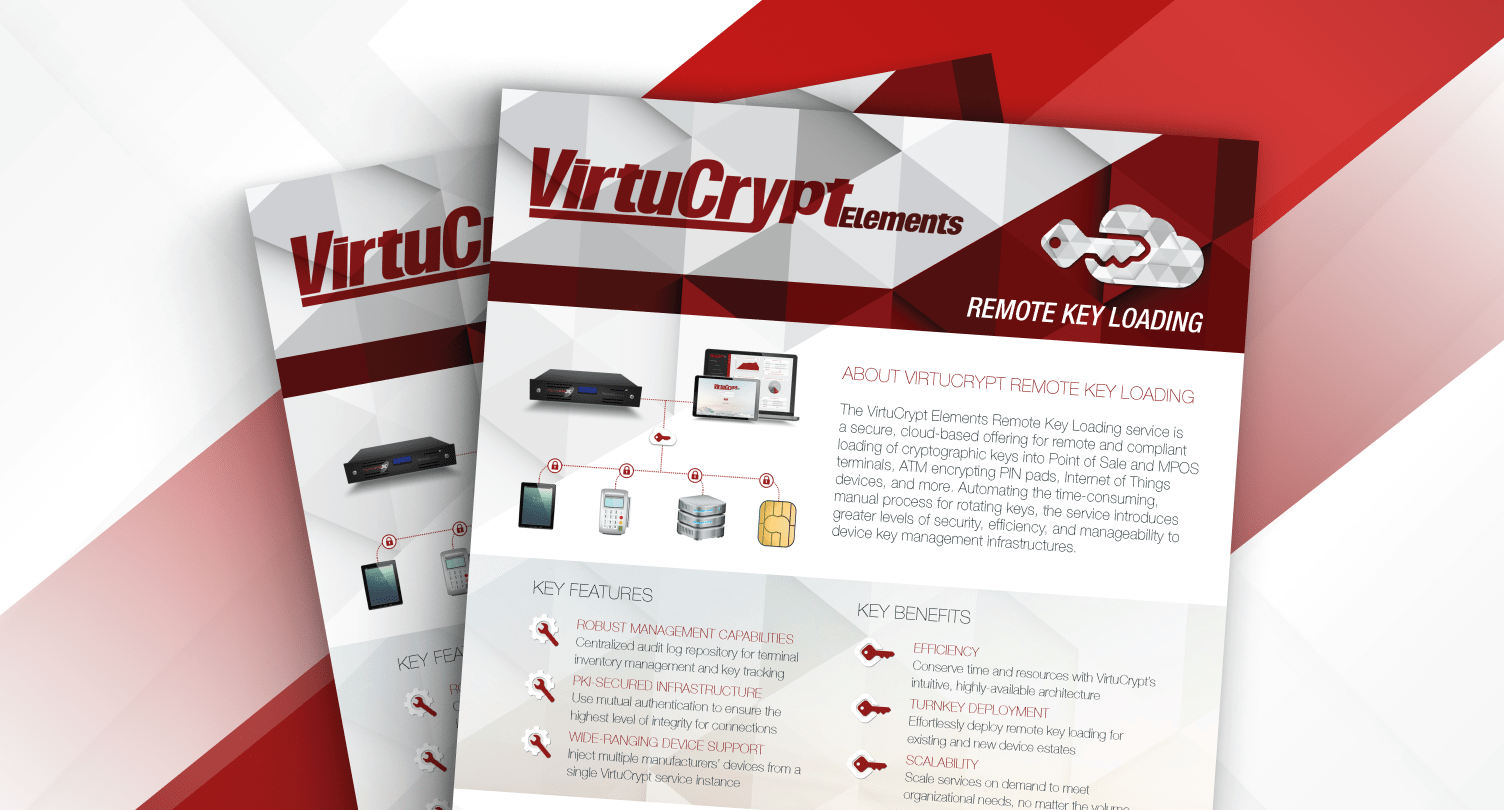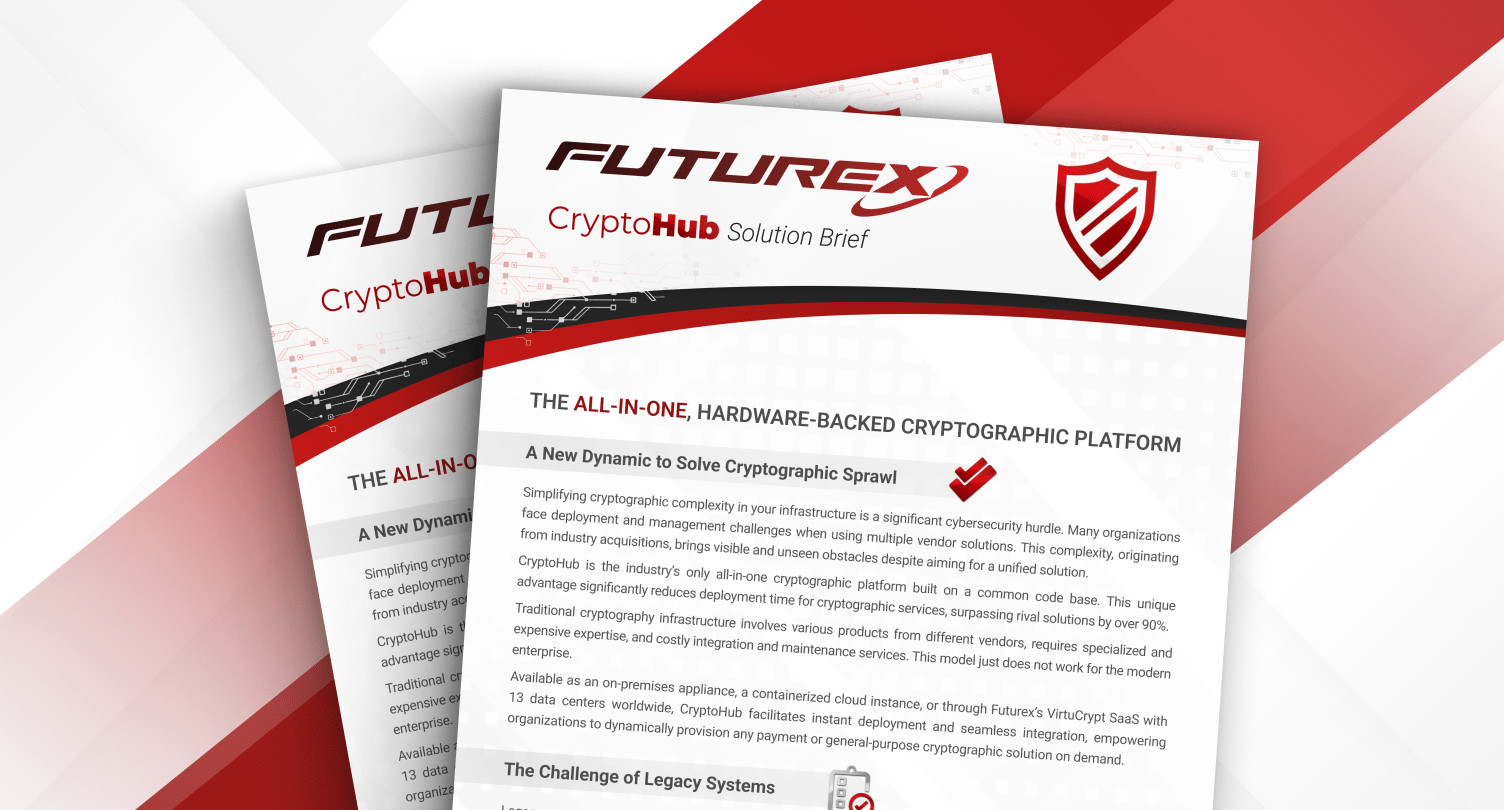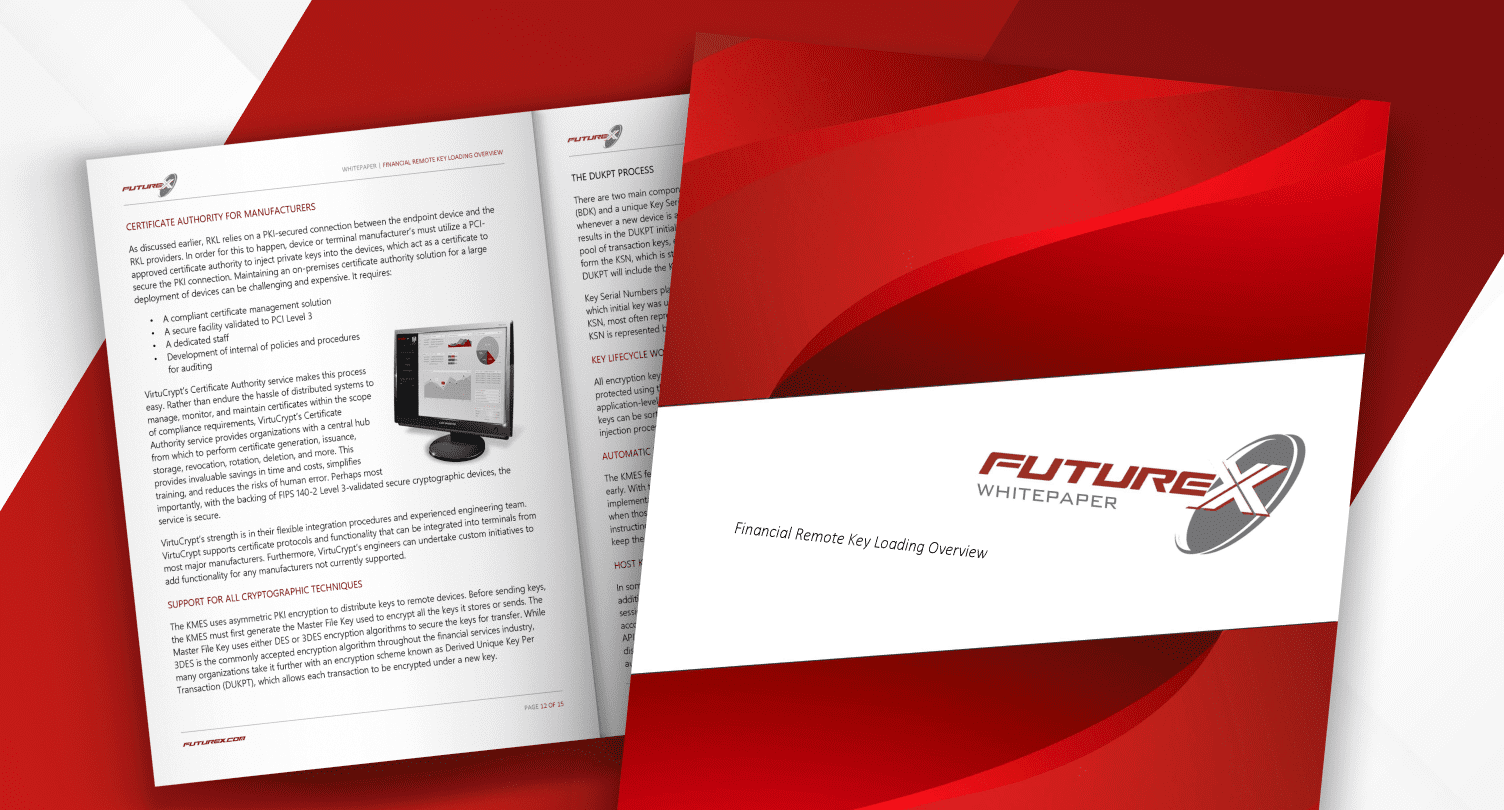Futurex is the industry’s only single-vendor provider of complete cryptographic payment security infrastructure. Many of Futurex’s most essential services, like PIN encryption and validation, P2PE, and tokenization, rely on secure and compliant key management.
In response to the growing demand for RKL within the financial services industry, Futurex has developed the most robust RKL solutions. Whether choosing cloud functionality through VirtuCrypt, on-premises hardware through Futurex or combining both, each solution has the functionality needed to build a comprehensive, single-vendor solution for all cryptographic processes related to financial services and payment processing.


.jpg?width=546&name=payment-remote-key-loading_point-of-sale_K%20(2).jpg)


/ds_thumbnail_cryptohub-min.png)



